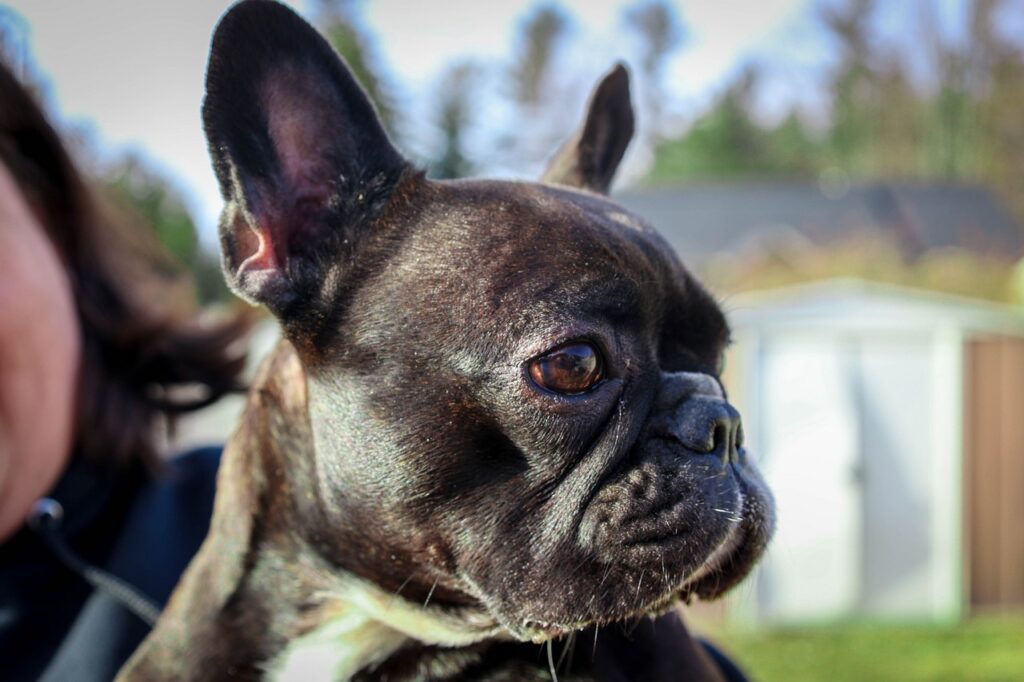Renowned geneticist, Dr. Jerold Bell, sheds light on a persistent myth circulating in the French Bulldog community.
The threat of degenerative myelopathy (DM)
Dr. Bell regrets that his presentation at the 2009 French Bulldog Club of America National Specialty health seminar might have inadvertently fueled this misunderstanding. The talk included a breed health survey wherein 2.3% of French Bulldog owners reported DM diagnosis in their pets. This survey, though well-intentioned, has since been scrutinized and updated with newfound understanding.

With a clear perspective today, Dr. Bell assures that there are no confirmed cases of DM in French Bulldogs. In fact, sequential video footage from owners who suspect DM in their French Bulldogs only reaffirms the absence of this neurological disorder in the breed.

A major source of confusion emanates from a genetic test for the sod1 mutation.
In 2008, researchers pinpointed a recessive mutation in the sod1 gene in all DM-confirmed dogs. This discovery prompted the launch of several genetic testing services, including one at the University of Missouri. However, it’s crucial to comprehend that DM is a complexly inherited disease, requiring mutations in unidentified genes, in addition to the sod1 mutation, for clinical manifestation. Given the absence of confirmed DM cases in French Bulldogs, Dr. Bell posits that the breed likely lacks these other requisite genes.

Interestingly, the sod1 mutation, an ancient anomaly in the dog genome, is quite prevalent across different dog breeds.
For instance, Mars/Genoscoper testing reveals a sod1 mutation frequency of 7.77% and 5.41% in mixed-breed and purebred dogs, respectively. Strikingly, in some breeds, despite the sod1 mutation frequency exceeding 90%, there are zero confirmed DM diagnoses. The French Bulldog also fits this pattern, with 2-5% testing homozygous “at risk” for the sod1 mutation and 18-33% emerging as heterozygous carriers. Nevertheless, in the case of French Bulldogs, the presence of the sod1 mutation has no bearing on the onset of DM, for it is not a clinical disease in this breed.

Regrettably, misdiagnoses, misconceptions, and sod1 testing misinterpretations have propagated unnecessary anxiety and preemptive genetic testing among the French Bulldog community. Some breed clubs even advocate pre-breeding sod1 testing, unintentionally promoting a limiting selection against potential breeding dogs.
This not only restricts the genetic diversity of the breed, but also places undue emotional stress on owners who fear a DM diagnosis. Dr. Bell recommends refraining from sod1 testing and breeding decisions based on such results until DM is proven to be a significant clinical disease in French Bulldogs. Meanwhile, breeders should focus on selecting for quality breeding dogs free of validated breed-specific disease liability genes and genetic disorders.

In conclusion, Dr. Bell’s insights prompt us to question and critically appraise the information surrounding the health of our beloved pets. His stance encourages us to avoid unnecessary genetic tests, dispel unfounded fears, and strive for the overall well-being and genetic diversity of the French Bulldog breed.
See Dr Jerold Bell’s official Statement Below:







